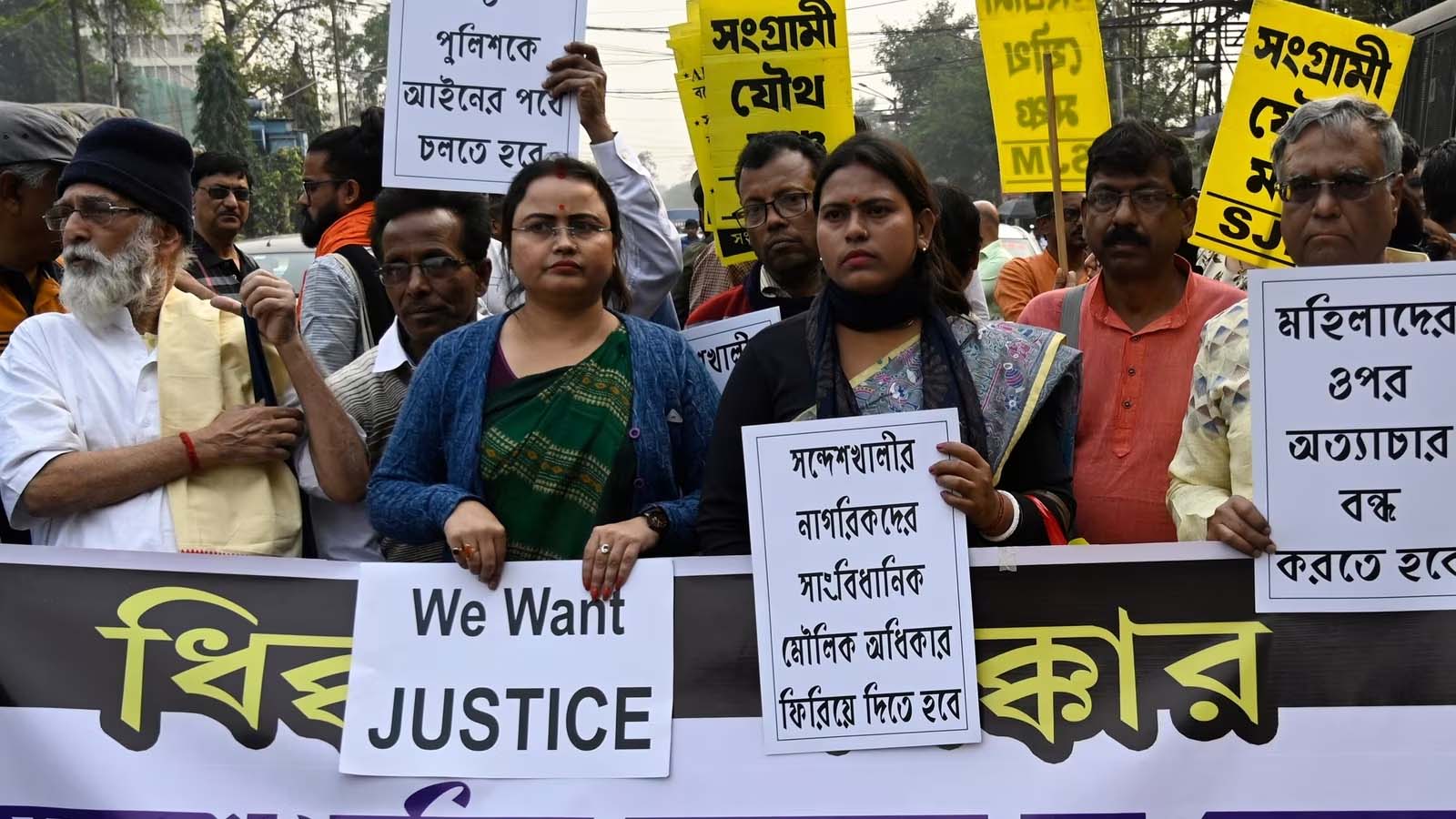“As far as law is concerned you cannot prohibit peaceful protest. Can state proceed on the assumption that every protest will be violent?”
-Justice Abhay S Oka, the then Chief Justice of Karnataka
On February 14, the Calcutta High Court bench of Justice Jay Sengupta set aside orders prohibitory orders imposed in West Bengal’s Sandeshkhali in the wake of unrest due to alleged sexual harassment of women and illegal land grabbing in the area by miscreants allegedly from the ruling political dispensation. The said order had been issued under Section 144 Code of Criminal Procedure, which prohibits assembly of four or more people in an area.
While quashing the said order, the single bench held that using such powers that have an effect on the fundamental rights of the citizens of India should be done with extra caution and concrete reasoning. As per a report in the LiveLaw, in the order, the bench stated that “The atrocities on the villagers by three prime miscreants belonging to the ruling political dispensation, as alleged, are absolutely repulsive and heart wrenching. Non-arresting of the prime miscreants and their accomplices coupled with restriction on free movement of the villagers, at least in terms of Section 144 of the Code, may pose undue harassment to the inhabitants of the area and make them more vulnerable to further atrocities, especially in view of the peculiar geography of the place. Such promulgation has to be done by exercising more care and circumspection and surely, with a better reasoning. After all we are dealing with the rights of the citizens of the country.”
Furthermore, in dealing with the 144 CrPC order, the Court particularly noted that the same order broadly referred to the tension in the area while not mentioning the exact nature of the illegality or apprehended danger had not been discussed, making the same “bald and ritualistic reference to the possibility of breach of peace.”
Observing the aforementioned, the bench also held that based upon the Supreme Court precedents on the test of promulgating S.144 CrPC orders, the High Court could find no such proper satisfaction of tests having been recorded in the present case.
As per the order, the court noted that no material had been placed on record stating why the entire Sandeshkhali police station area should be covered with the order. According, the Calcutta High Court bench then set aside the order imposing restrictions under Section 144 CrPC.
Notably, on February 13, a separate single judge bench of the High Court comprising Justice Apurba Sinha Ray had also taken suo moto cognizance of newspaper reports on the matter of alleged sexual harassment of women living in Sandeshkhali, West Bengal, and tribal lands that had been forcibly taken over.
No setting aside of prohibitory orders, only calls for amicable settle by Punjab and Haryana High Court
Sadly, the same stand was not taken by the division bench of the Punjab and Haryana High Court while dealing with the petition filed over the use of excessive obstructive actions by the State and Union governments in dealing with those farmers planning to participate in the farmers protest taking place in Delhi. The bench of Acting Chief Justice GS Sandhawalia and Justice Lapita Banerji rather urged the petitioners and the respondents to try “for an amicable settlement”.
The hearing of this petition took place on February 13, the day that farmers from the states of Punjab and Haryana were supposed to travel to Delhi as a part of their ‘Chalo Delhi’ march to raise demand for a law guaranteeing minimum support price (MSP) for their produce along with six other demands, which include implementation of the Swaminathan Commission’s recommendations that provide for safeguarding the interest of small farmers and addressing the issue of increasing risk overtaking agriculture as a profession, pensions for farmers and farm labourers, farm debt waiver, withdrawal of police cases and “justice” for victims of the Lakhimpur Kheri violence also form a part of the demands made. To prevent the farmers from joining this protest, the state of Haryana employed many tactics, from sealing of borders, putting up cement barricades on National Highways, to imposing prohibitory orders, deploying para-military, imposing internet shutdowns and even withholding ‘X’ (formerly Twitter) accounts. Yesterday, videos of Haryana police firing rubber pellets, using water cannons and dropping tear gases through drones at the farmers also surfaced.
Notably, two PILs (Public Interest Litigations) had been filed in the High Court. in one of the petitions, the petitioner had assailed Haryana government’s decision to seal its borders in order to prevent the agitators from entering the State and moving to Delhi. On the other hand, the second PIL was against protestors, stating that they have unauthorisedly blocked state and national highways.
In the said hearing, the bench emphasised that the protestors were granted the right to move around freely in the country through Article 19 of the Constitution, while, in the same breath, it added that State government also has the duty to protect its citizens and ensure that no inconvenience is caused to them.
As per a report in the LiveLaw, the bench then observed “There has to be balance in fundamental right to speech and expression, none of the rights are in isolation. The cautionary should be kept in mind and issue should be resolved amicably…All parties in the present dispute should make efforts to sit down and solve the problem and area should be identified by states to protest.”
With this, the division bench issued notices to the Union government as well as the governments of Punjab, Haryana and Delhi. Additionally, the bench asked the State governments to determine protest sites until then.
No interim relief to the protesting farmers was granted by the bench. The next hearing in the matter has been set for February 15, 2024.
Related:
Farmers’ Protest: Physical repression, prohibitory orders, Delhi entry blocked – Déjà Vu?

